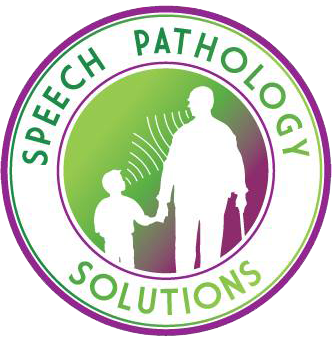Speech therapy has undergone a remarkable transformation with the rise of digital technology. Where once the journey to improving speech was confined within the walls of clinics and therapy rooms, it has now expanded to the virtual realm through innovative speech therapy apps. These apps have begun to play a crucial role in speech therapy, offering new avenues for engagement and learning.
How Speech Therapy Apps Work
Speech therapy apps are designed to facilitate and encourage the practice of speech skills. They utilize interactive exercises, games, and structured activities that can be customized to suit individual therapy goals. These digital tools often include visual and auditory stimuli to aid in the development of language and articulation, serving as an adjunct to traditional speech therapy methods.
Benefits of Using Speech Therapy Apps
Accessibility and Convenience: One of the most significant advantages of these apps is their ability to make therapy exercises accessible anytime and anywhere, breaking geographical and scheduling constraints.
Engaging and Interactive Learning: The interactive nature of these apps, often designed with vibrant graphics and gamification elements, can increase a user’s motivation to practice. They turn repetitive and sometimes monotonous exercises into a fun and rewarding experience.
Progress Tracking and Feedback: Digital platforms excel at providing real-time feedback and tracking progress. Users can see their improvements over time, which can serve as a powerful motivator. Additionally, speech therapists can use this data to tailor ongoing therapy.

Selecting the Right Speech Therapy App
Selecting an appropriate speech therapy app is critical for ensuring that the user receives the most benefit from their digital therapy sessions. Here are some key factors to consider:
User Age: Choose apps that are age-appropriate, with interfaces and content that cater to the developmental stage of the user—be it a child, adolescent, or adult.
Type of Speech Impediment: Identify apps that target specific speech impediments such as stuttering, apraxia, or articulation disorders, ensuring the activities are relevant to the user’s needs.
Compatibility with Therapy Goals: The app should align with the ongoing therapy program’s goals and be able to track progress in a way that contributes to the overall therapy strategy.
User Engagement: Look for apps with engaging and motivating content to keep the user interested in regular practice. Interactive features and rewards can enhance commitment.
Feedback Mechanism: Ensure that the app provides clear and constructive feedback. This can help users understand their progress and areas needing improvement.
Professional Recommendations: Consult with a speech-language pathologist for personalized app recommendations that complement in-person therapy sessions.
Evidence-based: Select apps that are backed by research and have a proven track record of effectiveness.
Integrating Speech Therapy Apps into Routine Practice
Introducing speech therapy apps into daily routines can significantly enhance traditional therapy methods. Establishing a consistent schedule for app exercises reinforces the importance of regular practice. These digital tools are also excellent for warming up before in-person sessions, setting the stage for a productive meeting with a speech therapist.
It’s important to note that these apps are designed to supplement, not replace, the invaluable face-to-face interactions with qualified professionals. Speech therapists may recommend specific apps that align with the strategies employed during in-person therapy, ensuring continuity of care.
Assigning app-based exercises as homework can extend the benefits of therapy beyond the clinic, allowing for additional practice that reinforces skills developed during sessions. Moreover, involving family members in-app exercises can bolster a supportive home environment, further enhancing the therapy’s effectiveness.
The Future of Speech Therapy Apps
The evolution of speech therapy apps is poised to continue alongside technological growth. Artificial intelligence is expected to bring a new level of personalization to these apps, adapting to each user’s unique needs and progress. Meanwhile, augmented reality holds the potential to create more engaging and interactive therapy experiences.
While these technological advances are exciting, it’s vital to recognize that they are intended to augment the personalized care provided by speech therapists, not to replace it. The future of speech therapy apps lies in their ability to offer innovative support tools that work in harmony with traditional therapy practices.

Unlock the Power of Tech in Speech Therapy with Speech Pathology Solutions
As we embrace the potential of speech therapy apps to complement traditional therapy, we at Speech Pathology Solutions invite you to explore the digital horizon with us. Whether you’re looking to enhance your current therapy program or seeking new ways to support your communication goals, our team of experienced speech-language pathologists is here to guide you through the selection and integration of the best speech therapy apps. Contact us today to discuss how we can personalize your therapy experience with cutting-edge technology and ensure you have the tools for success on your speech therapy journey.

